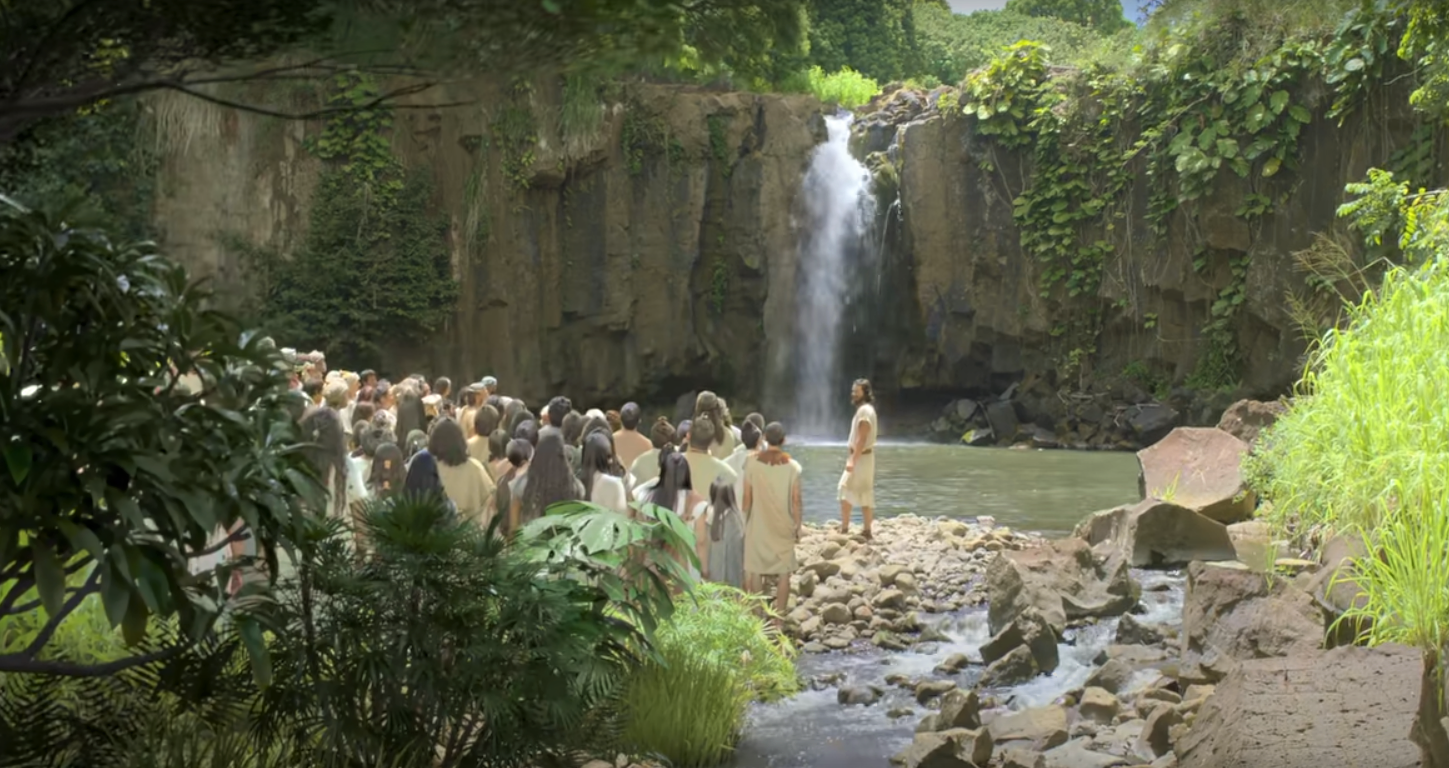To accompany your Come Follow Me study for May 20-26
In addition to reading these chapters, you will enjoy watching the following videos:
You will also enjoy reading the following related material from the Book of Mormon Institute Student Manual:
If you would like a Kahoot game related to this material which you could use for personal study or use with your family or your class, click here: https://create.kahoot.it/share/mosiah-18-24/82a7950d-fe87-40ef-86a3-c51ff1da58fc . To use it with a group, after clicking on this link, you will need to log into Kahoot, creating a free account if you have not done so previously, then click on the blue “Start” button. Some of the Kahoot questions may presuppose that the player has read through the suggested answers to the following Points to Ponder and at least has browsed the Institute student manual as well.
Points to Ponder in Mosiah 18-24
1. What part of the “fine print” in the baptismal covenant as outlined in Mosiah 18:8‑10 do you feel is most in need of additional emphasis? Why?

2. In the baptismal contract, as summarized by Alma in Mosiah 18:8-10, we make certain promises to God, and He makes others to us, some of which will not be realized until after we die. What is the one promised blessing that we can all receive immediately?
3. What was the immediate effect of that blessing upon both Alma and Helam, after Alma baptized Helam?
4. What possible answers could be given to the question of where Alma got his authority to baptize, if by the time Ammon arrived on the scene shortly after Alma’s conversion “there was none in the land that had authority from God”? How important is it to have an answer?
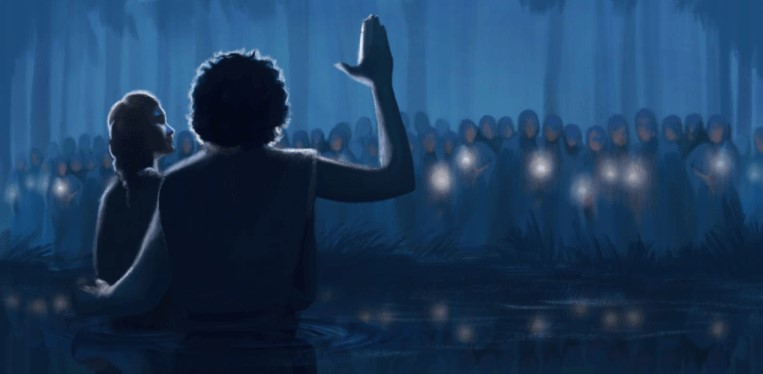
5. Why didn’t Alma’s church correspond organizationally with ours? (18:18) Does it matter what organizational form a church has? Is your answer consistent with the 6th Article of Faith?
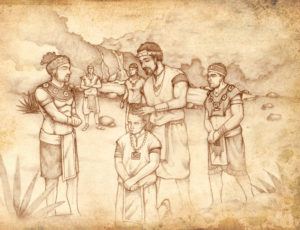
6. Don’t you suppose Nephite sermons were rather boring if they dealt with nothing but faith and repentance? (18:20) Why were they not to discuss other principles of the gospel?

7. Compare and contrast the escapes of Alma’s and Limhi’s colonies. What do you suppose accounted for the differences?
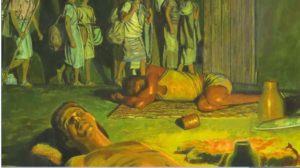
8. Why would a monarchy be better than a democracy, if only we could be assured of always having righteous kings? (23:8)
9. Does 23:14 mean that all Latter-day Saint students should go to BYU? If not, what is the practical application of Alma’s advice?
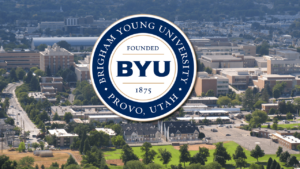
10. Why did Alma surrender to his enemies (23:29) when we have been taught that freedom is more to be prized than life itself?
11. Why didn’t Daniel in Old Testament times take the same approach prayer as the Nephites when prayer was outlawed? (24:11‑24) Is vocal prayer preferable to silent prayer? If you lived with non‑members, would it be better to have a silent prayer in bed, where others would not be in a position to mock and where pearls would not be case before swine, or would it be better to kneel at your bedside where you could set an example for others? What about asking a blessing on your food at a restaurant?
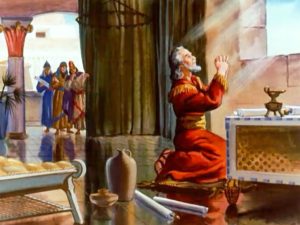
12. How many miraculous instances of divine intervention can you find in this week’s reading assignment?
13. If you had to pick two or three passages out of this week’s entire reading assignment as the most inspiring or important to you personally, which ones would you pick? Why?
Possible answers to Points to Ponder in Mosiah 18-24
1. What part of the “fine print” in the baptismal covenant as outlined in Mosiah 18:8‑10 do you feel is most in need of additional emphasis? Why?
Your choice. I might suggest that some need to be reminded that at baptism they commit to serve others, rather than sign up to be served. And the commitment is “even until death,” not for just a few weeks or months or even years.
2. In the baptismal contract, as summarized by Alma in Mosiah 18:8-10, we make certain promises to God, and He makes others to us, some of which will not be realized until after we die. What is the one promised blessing that we can all receive immediately?
To have God’s Spirit poured out more abundantly upon us.
3. What was the immediate effect of that blessing upon both Alma and Helam, after Alma baptized Helam?
They were both filled with joy. (18:14.) That’s one of the great things the Spirit does for us, making us happy and giving us peace no matter what our external circumstances may be.
4. What possible answers could be given to the question of where Alma got his authority to baptize, given that no one else in the land had authority to do so a few chapters later? How important is it to have an answer?
Possibilities include (1) that Abinadi gave him the authority, which in turn begs the question of where Abinadi himself got it. (2) A second possibility is that Alma already had the priesthood, having been ordained before his apostasy, and simply had to repent in order to be able to exercise it again. (3) It is also possible that Alma was ordained by a divine messenger in an unrecorded encounter. Joseph Smith taught that all the Old Testament prophets had the Melchizedek Priesthood and were ordained by God Himself. It is not important at all to know which of these possibilities is the correct one, but it may be important to recognize that there is at least one plausible answer (in this case three), so that one doesn’t start to think the Book of Mormon contradicts itself.
5. Why didn’t Alma’s church correspond organizationally with ours? (18:18) Does it matter what organizational form a church has? Is your answer consistent with the 6th Article of Faith?
Alma’s small and simple church with one priest per fifty members seems at first glance wildly different from our current complex organization and inconsistent with the 6th Article of Faith’s insistence that the current church should be organized like the “primitive church.” However, when the Article of Faith emphasizes the importance of the church’s having apostles, prophets, pastors, teachers, and evangelists, it is speaking of functions, not of titles. Though details of titles and organization change according to circumstances, the true church has always had and always must have those who speak for God and can testify from first-hand knowledge of His reality (apostles and prophets), those who preside over and serve local congregations (pastors), and teachers and missionaries to declare the word to members and non-members alike.
6. Don’t you suppose Nephite sermons were rather boring if they dealt with nothing but faith and repentance? (18:20) Why were they not to discuss other principles of the gospel?
It can be argued that the only things which would properly be taught either from the pulpit or in the classroom at church would be those which tend to strengthen our conviction of the reality and goodness of God and the divinity of the restored gospel (in other words “faith”) or those which would motivate us to live better or teach us how to do so (in other words “repentance.”) Travelogues, speculation, and imparting trivial information for information’s sake have no place in our meetings, but under the major headings of “faith” and “repentance” there are hundreds of inspiring messages that could be given.
7. Compare and contrast the escapes of Alma’s and Limhi’s colonies. What do you suppose accounted for the differences?
In the case of Limhi’s group, the idea for how to escape came from Gideon. Its implementation required the Nephites to make the Lamanites drunk. The eventually pursuing Lamanite armies lost the tracks of the Nephites. It worked, but there was little visible evidence of divine assistance. In the case of Alma’s people, the Lord revealed the escape plan, He put the Lamanites to sleep long enough for the Nephites to leave, and He stopped them by His power when they were about to overtake the Nephites. The more dramatic display of divine power no doubt was due to the greater faithfulness of Alma’s people, as contrasted with the general population under Limhi, who had been so wicked under Noah and so slow to call upon the Lord.
8. Why would a monarchy be better than a democracy, if only we could be assured of always having righteous kings? (23:8)
A monarchy is more efficient. The kingdom of God is a divine monarchy. It isn’t the “Republic of God” nor the “Democracy of Divinity.” But in mortality, since “it is the nature and disposition of almost all men, as soon as they get a little authority” to “immediately begin to exercise unrighteous dominion” (D&C 121:39, it is better for us to live under a constitutional republic.
9. Does 23:14 mean that everyone should go to BYU? If not, what is the practical application of Alma’s advice?
BYU obviously couldn’t accommodate all of the Latter-day Saint college students. Institutes of Religion function adjacent to all major campuses where there is sufficient Latter-day Saint enrollment and are designed to help meet the spiritual needs of the students, while their academic needs are met quite nicely by the secular institution. Alma doesn’t mean that we can’t get useful information and instruction from non-Latter-day Saint sources, but that we should not let anyone else make final decisions for us unless they are inspired of God. Even at BYU that would not necessarily be the case all the time. We each have the right and even the obligation to seek and receive personal inspiration to make the weighty decisions of life.
10. Why did Alma surrender to his enemies (23:29) when President David O. McKay taught we should teach our children “that to be free is as precious as life itself”?
Certainly, death in defense of freedom would be preferable to dooming oneself and one’s family or nation to generations of servitude. But it is not necessarily better than submitting to a temporary captivity. The Nephites’ faith was that if they were righteous, “God … would prosper them in the land; yea, warn them to flee, or to prepare for war, according to their danger.” (Alma 48:15.) Presumably Alma felt impressed in this case to submit to the Lamanites, confident that the Lord in His time would free them, which He did.
11. Why didn’t Daniel in Old Testament times take the same approach prayer as the Nephites when prayer was outlawed? (24:11‑24) Is vocal prayer preferable to silent prayer? If you lived with non‑members, would it be better to have a silent prayer in bed, where others would not be in a position to mock and where you would not be “casting pearls before swine,” or would it be better to kneel at your bedside where you could set an example for others? What about asking a blessing on your food at a restaurant?
There may well be times when it is important to take a stand and pray visibly, even if death is the threatened consequence, whereas at other times the Spirit will prompt one to do as Alma’s people did and pray silently. The same may be true of public prayer in less critical circumstances. There may be times when we may set an example for others by praying in a restaurant, but at other times it may seem to others that we are just flaunting our religiosity. The Savior condemned the public, showy prayers of the Pharisees and counseled His followers in general to pray in private.
12. How many miraculous instances of divine intervention can you find in this week’s reading assignment?
The following at least should be included:
- The Spirit fell on both Alma and Helam, causing them to rejoice following the baptism of Helam (18:13-14)
- Limhi’s people held their own against a Lamanite army more than double their number. (20:11.)
- The Lord began to soften the hearts of the Lamanites to ease the burdens of Limhi’s people and began to prosper the people “by degrees.” (21:15-16)
- The Lord warned Alma of the coming of Noah’s armies (23:1)
- The Lord strengthened Alma’s people so Noah’s armies could not overtake them. (23:2)
- The Lord softened the hearts of the Lamanites so they did not kill Alma’s people (23:29)
- The Lord comforted Alma’s people and assured them of an eventual deliverance, and also made them more capable of enduring their burdens. (24:13-16)
- The Lord revealed Alma’s escape plan. (24:17)
- The Lord caused a deep sleep to come upon the Lamanites. (24:19)
- The Lord stopped the pursuing Lamanite armies. (24:23)
13. If you had to pick two or three passages out of this week’s entire reading assignment as the most inspiring or important to you personally, which ones would you pick? Why?
Your choice. I might consider the following:
- Mosiah 18:8-10—The baptismal covenant.
- Mosiah 18:20—The reminder to teach only faith and repentance.
- Mosiah 18:27—The welfare program at work among Alma’s people
- Mosiah 23:14—The injunction to let no one be our teacher or minister except he be a man of God.
- Mosiah 24:15—A reminder that the Lord doesn’t necessarily relieve us of problems but gives us strength to endure them.
